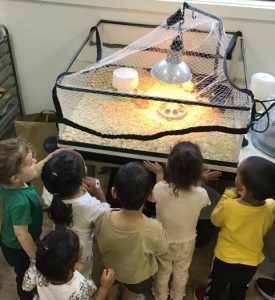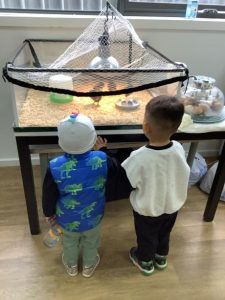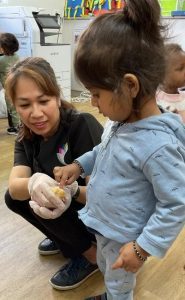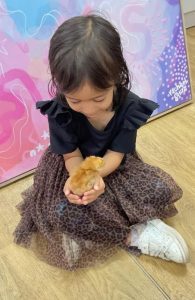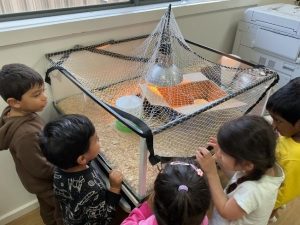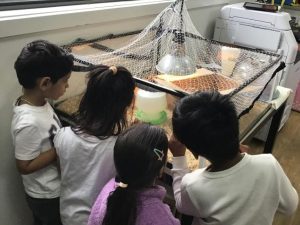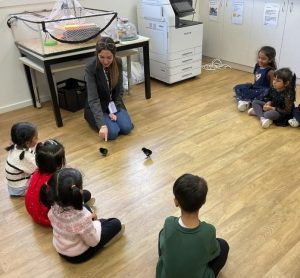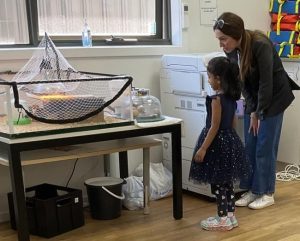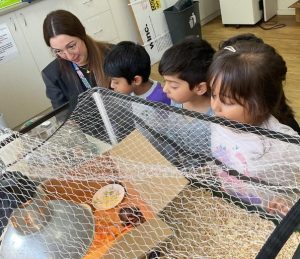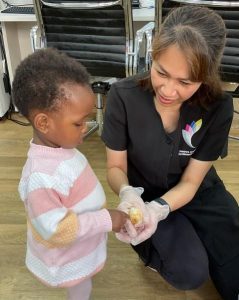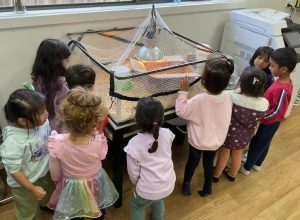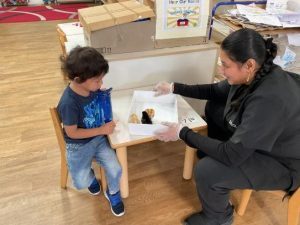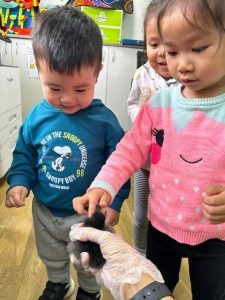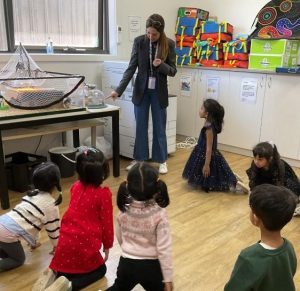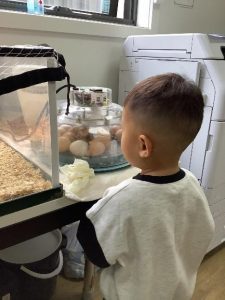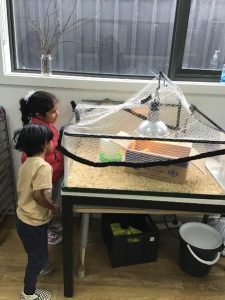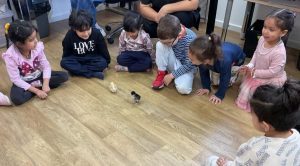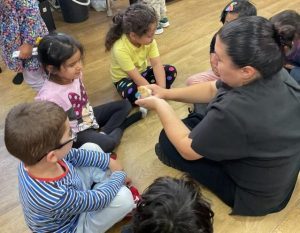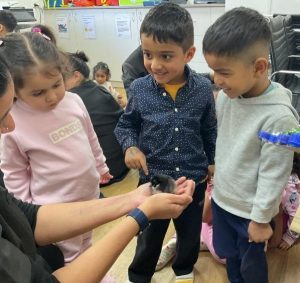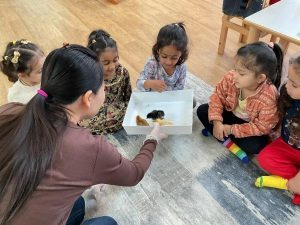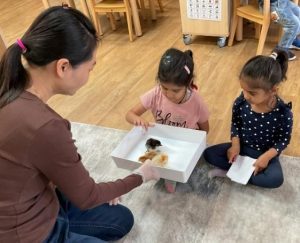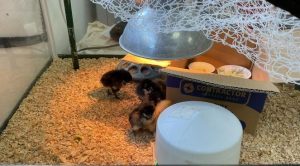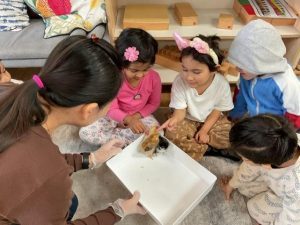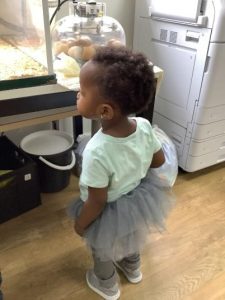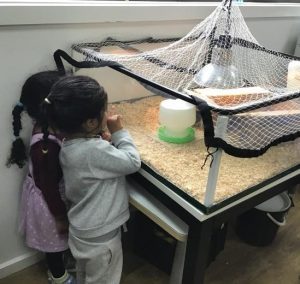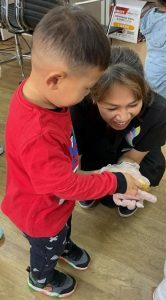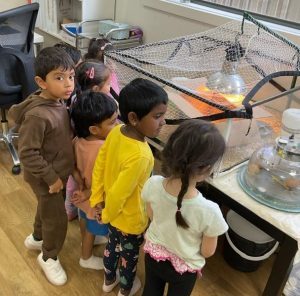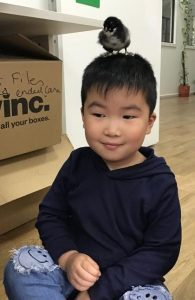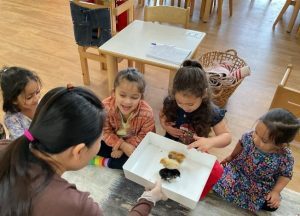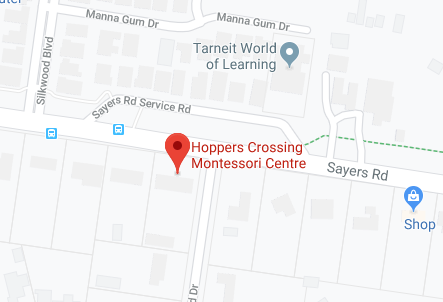At Hoppers Crossing Montessori Centre, we believe that hands-on, real-life experiences provide children with the richest learning opportunities, and what could be more exciting than watching a fluffy little chick hatch before your eyes?
This month, our centre was buzzing with excitement as we welcomed the Henny Penny Chicken Hatching Program! Over the course of ten wonderful days, the children had the unique opportunity to observe the life cycle of a chicken from egg to hatchling, engaging in a truly unforgettable learning experience.
It all began with the arrival of a special incubator filled with fertilised eggs, carefully placed in a cozy corner of our planning room. The children were immediately drawn to the incubator, checking in each day with curiosity, questions, and wonder. Educators guided the children through understanding the initial stages of incubation, explaining how warmth, turning of the eggs in a timely manner, and patience all play a vital role in the development of the chicks.
As the days passed, the children became budding scientists, documenting their observations and making predictions: When would the chicks hatch? How many would there be? What would they look like? These daily reflections helped build early literacy and numeracy skills, as children used descriptive language, drew pictures, and counted down the days.
Then came the magical moment, the hatching day. One by one, little cracks began to appear, followed by tiny beaks poking through the shells. Gasps, cheers, and happy squeals filled the room as fluffy chicks emerged, blinking at their new world. It was a heartwarming experience that taught children about patience, the miracle of life, and the importance of care and gentleness.
Through the Henny Penny experience, the children explored themes from:
- Science: Life cycles, animal needs, growth and change
- Literacy: Storytelling, vocabulary development, observational writing
- Numeracy: Counting eggs and chicks, measuring time, graphing observations
- Social and Emotional Learning: Empathy, responsibility, and nurturing
We also tied the experience into group discussions about farm life, sustainability, and where our food comes from. The children developed a deeper appreciation for living things and the natural world.
A big part of the program involved teaching the children how to handle the chicks with care. Guided by educators, they learned to hold the baby chicks gently, speak softly around them, and respect their space. This helped foster empathy and a sense of responsibility and valuable life skills that extend far beyond the classroom.
As the program came to an end, the children had the chance to say goodbye to their feathered friends but for some, it wasn’t goodbye at all. A few of our lovely families chose to adopt the chicks and welcome them into their homes as pets. While parting with the chicks brought a few teary eyes, the children were filled with pride, joy, and a wealth of knowledge from this heartwarming experience.

